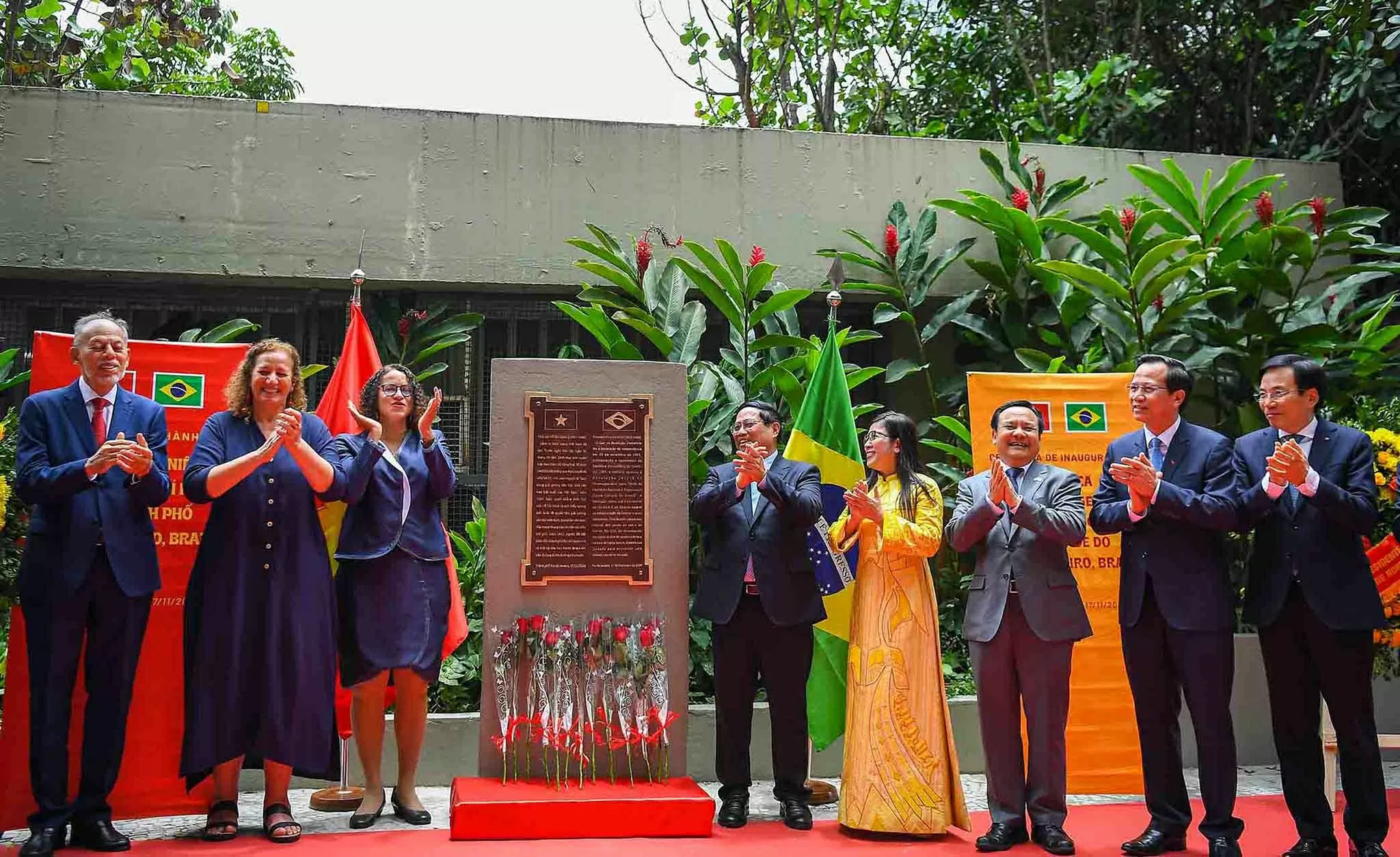 |
| Prime Minister Pham Minh Chinh and his wife attend the inauguration ceremony of a plaque commemorating President Ho Chi Minh 's journey in Rio de Janeiro, on the occasion of his trip to Brazil to attend the G20 Summit in November 2024. (Photo: Nguyen Hong) |
As the Vietnamese Ambassador to Brazil, I am honored to continue that spirit when recounting the trip of the young patriot Nguyen Tat Thanh to Rio de Janeiro in 1912 - a journey filled with the aspiration to save the country, with an international vision, associated with the process of verifying the location and inaugurating the memorial plaque here.
A special gift and a trip
As soon as I arrived in Brazil for work, I received a special gift from a friend of the Brazilian Communist Party - a book about the Brazilian Communist Party (PCdoB) along with an article about the patriotic young man Nguyen Ai Quoc attending the 1922 International Communist Conference in Moscow, Russia. It mentioned that he told his story to a member of the Brazilian Communist Party in 1912 in Rio de Janeiro. Those simple lines urged me to search for historical footprints.
The year 2024 has a special significance, marking the 50th anniversary of the implementation of Uncle Ho's Testament, the 35th anniversary of the establishment of Vietnam-Brazil diplomatic relations, and the 134th anniversary of his birth. There were suggestions to me about erecting a statue, building a memorial, or painting a mural of Uncle Ho. I decided to make a field trip, both to supplement documents and to prepare for activities to welcome Prime Minister Pham Minh Chinh's working trip to Brazil to attend the G20 Summit. Initially, I had no specific idea, just hoping to do something meaningful. The most important thing was to go to find, feel, and understand.
In 1911, when the young man Nguyen Tat Thanh, with a burning desire to find a way to save the country, boarded the ship L'Amiral Latouche-Tréville as a kitchen helper. From bustling seaports such as Oran, Dakar, Alexandria, Boston, to New York, he witnessed the diversity of the world , but also recognized the profound injustices of colonial society. I imagine, during his days drifting at sea, Nguyen Tat Thanh's eyes always turned to his homeland with a strong desire to liberate the nation. And then, it was in the city of Rio de Janeiro, an unexpected stopover, that left a deep mark on his revolutionary thinking.
In 1912, due to overwork on board the ship, Nguyen Tat Thanh suffered from serious health problems and had to go ashore in Rio de Janeiro for treatment. I seem to see the image of that young man, in the tree-lined Santa Teresa neighborhood, finding shelter in a simple inn. That is where, in four short months, he not only recovered his health but also broadened his vision of the world. Working at a restaurant in the Lapa neighborhood, where the upper class gathered, but living among the poor workers in Santa Teresa, Nguyen Tat Thanh observed the clear divide between rich and poor in Brazilian society. The Mangue area, with its miserable lives of migrant workers, left him with profound thoughts about injustice and exploitation.
Here, Nguyen Tat Thanh met Mr. José Leandro da Silva, a black trade union leader who fought tirelessly for the rights of the working class. The conversations with Mr. José da Silva reinforced and deepened in his mind the ideas of class solidarity and the workers' movement. I seemed to hear their heated conversations about the power of solidarity in the fight against oppression. These experiences were recorded by him in the article "Solidarité de Classe" in Le Paria in 1924, with vivid descriptions of the workers' struggle at the port of Rio de Janeiro, demonstrating his deep attachment to the international revolutionary movement.
At the end of March 2024, I arrived in Rio de Janeiro with pride and responsibility to authenticate Uncle Ho's historical footprints. Accompanying me were attaché Nguyen Minh Tai and his enthusiastic Brazilian friends: Mr. Pedro de Oliveira, a member of the Communist Party, Brazilian historian and Secretary General of the Brazil - Vietnam Friendship Association; Ms. Marcelle Okuno, who was born and raised in Rio de Janeiro, a candidate for Honorary Consul of Vietnam in Rio de Janeiro state; and Mr. Pedro Gomes Rajão, who has devoted his life to researching Uncle Ho's journey here. During the three days of work, we visited the Lapa and Santa Teresa areas, where Uncle Ho lived and worked. Although time has blurred the specific traces, I can still feel the breath of history through every street and every corner of the house.
What remains forever in the land of Brazil's love
What moved me was the respect and admiration that the local government had for President Ho Chi Minh. Mr. Lucas Padilha, Chairman of the G20 Committee of the city, shared with us about the film O Rio de Janeiro de Ho Chi Minh (2010), a work that vividly recreated his journey. In addition, Vice Mayor Nilton Caldeira promised to support the Embassy in coordinating commemorative activities, so that Uncle Ho's story can continue to spread in this South American land.
There was no project in advance, but after verifying the field and consulting with the staff of the Embassy, we unanimously decided to place a commemorative plaque commemorating President Ho Chi Minh's journey in Rio de Janeiro. Choosing the location, form and implementation method was a process of thinking, mobilizing and coordinating. After reporting back to the country, supplementing the project and discussing with the local authorities, we chose the train station in the Santa Teresa area - where Uncle Ho used to live, crowded with people, behind the plaque there were rows of ancient trees providing shade.
On the occasion of Prime Minister Pham Minh Chinh's visit to Rio de Janeiro to attend the G20 Summit (November 2024), the Embassy coordinated with relevant agencies to inaugurate a plaque commemorating President Ho Chi Minh's journey in Rio, as a symbol of solidarity and attachment between the two nations. This activity is part of a series of events celebrating Vietnam Day Abroad.
The following year, on the occasion of the 135th anniversary of President Ho Chi Minh's birthday, the Embassy organized an incense offering ceremony at the memorial sea during Prime Minister Pham Minh Chinh's working trip to attend the BRICS Summit (July 2025).
It can be said that Uncle Ho's journey in Rio de Janeiro was not only a personal milestone, but also laid the foundation for the Vietnam - Brazil friendship today. From those historical links, the two countries have built a strong friendship, marked by the milestone of upgrading the relationship to a Strategic Partnership.
Looking back at 80 years of construction and development, the Vietnamese Diplomatic sector is even more proud of the values that President Ho Chi Minh laid the foundation for. From a patriotic young man who spent 30 years searching for a way to save the country, he sowed the seeds of peace, solidarity and international cooperation. Today, one of those seeds has borne fruit, demonstrated through the increasingly deep Vietnam-Brazil relationship in the fields of economics, trade, science - technology, culture, sports, tourism and people-to-people exchange.
Uncle Ho's journey in Rio de Janeiro is a story of patriotism, steadfast will and timeless vision. On the occasion of the 80th anniversary of the Diplomatic Service and the 135th birthday of President Ho Chi Minh, the Vietnamese Embassy in Brazil is determined to continue spreading these values, so that the story of Uncle Ho is not only the pride of the nation, but also a source of inspiration for international friends, especially in the affectionate land of Brazil.
Uncle Ho's footprints in Rio de Janeiro are also a vivid testament to the spirit of proactive, creative diplomacy, daring to think and dare to do. Sometimes, a small idea, if nurtured with consensus, perseverance and persistence, can create great results. For every diplomat, the important thing is to know how to research, learn and listen to even the smallest details to transform them into concrete, practical and widespread results. That is also the way we follow the revolutionary light that President Ho Chi Minh lit more than a century ago, not only in the motherland of Vietnam, but also in the foreign land of Rio de Janeiro.
Source: https://baoquocte.vn/giua-rio-de-janeiro-toi-nghe-thay-324384.html





![[Photo] Dan Mountain Ginseng, a precious gift from nature to Kinh Bac land](/_next/image?url=https%3A%2F%2Fvphoto.vietnam.vn%2Fthumb%2F1200x675%2Fvietnam%2Fresource%2FIMAGE%2F2025%2F11%2F30%2F1764493588163_ndo_br_anh-longform-jpg.webp&w=3840&q=75)


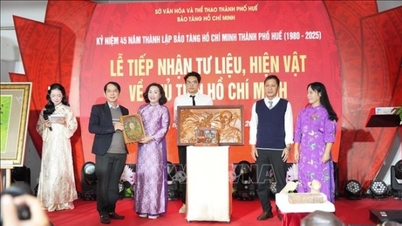
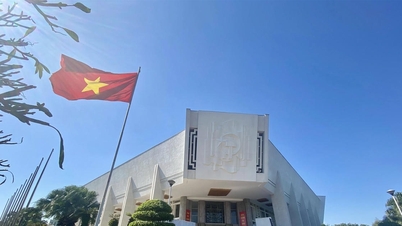

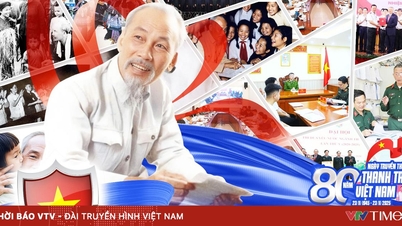

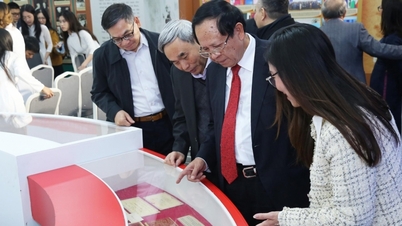


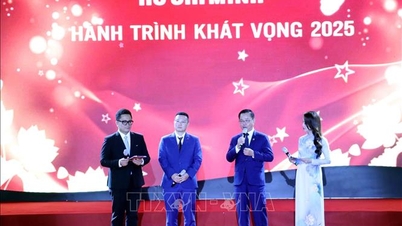

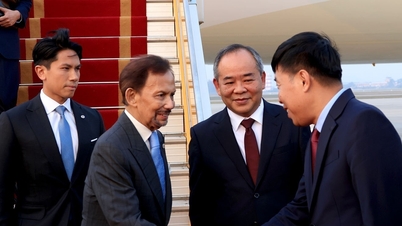

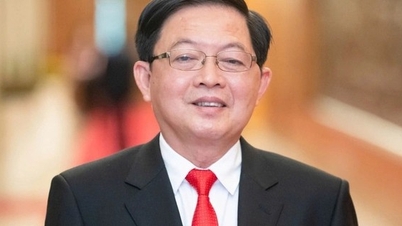





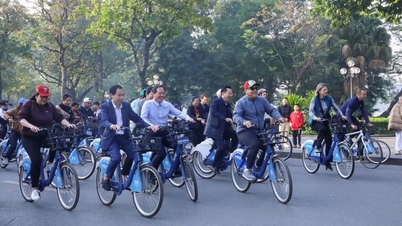




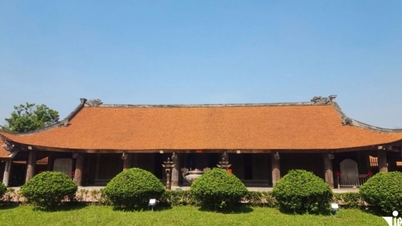
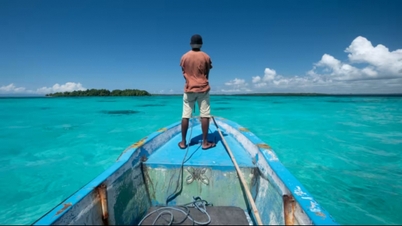
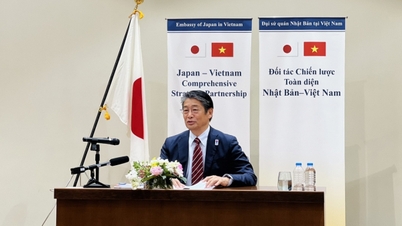
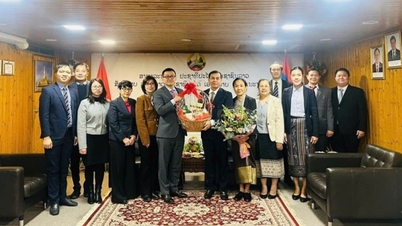
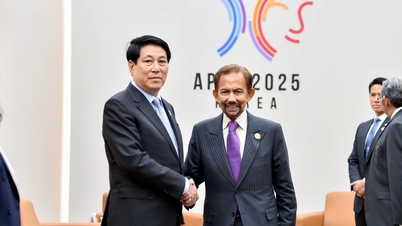







































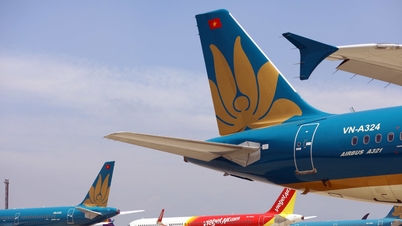








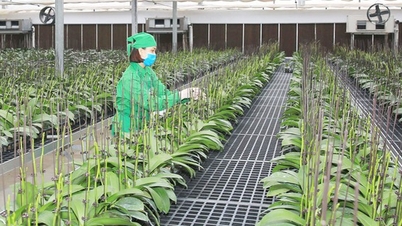




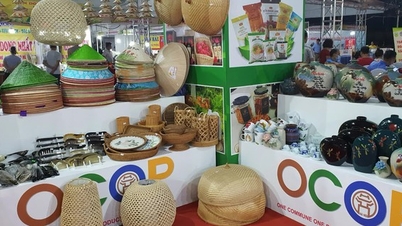


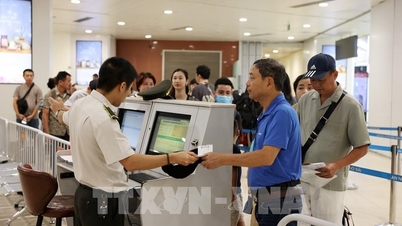



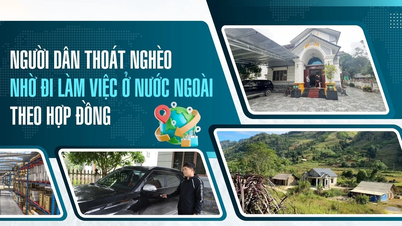

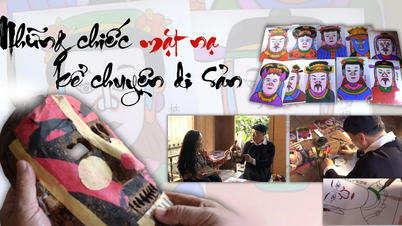
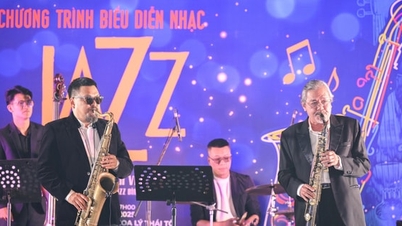










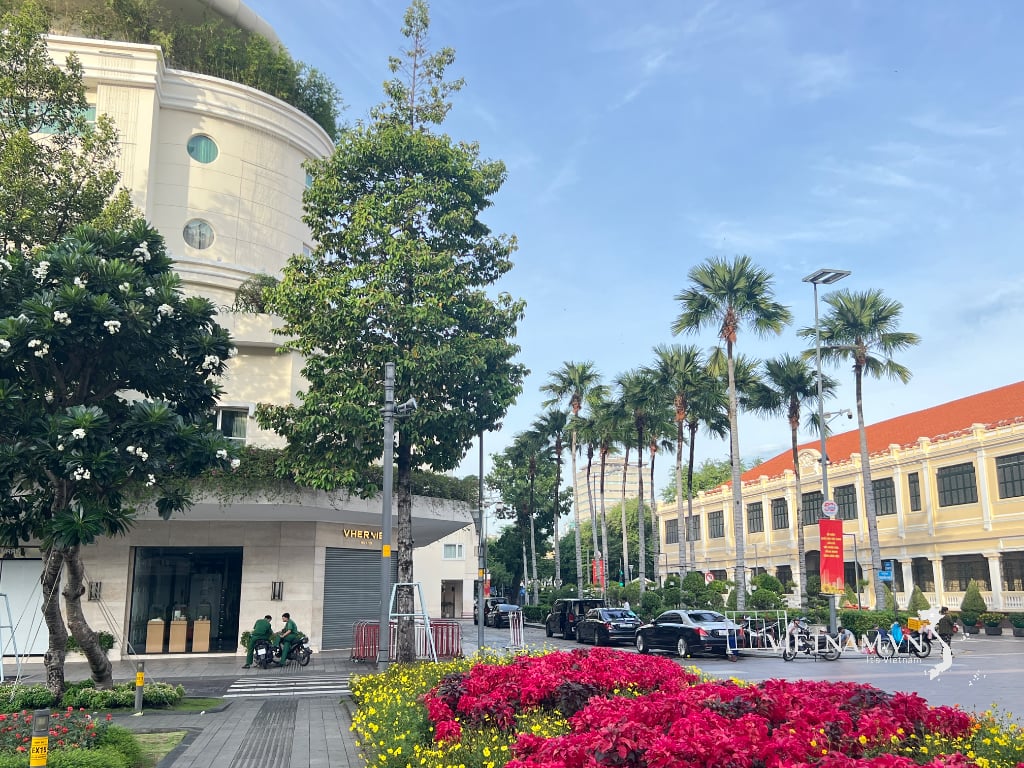
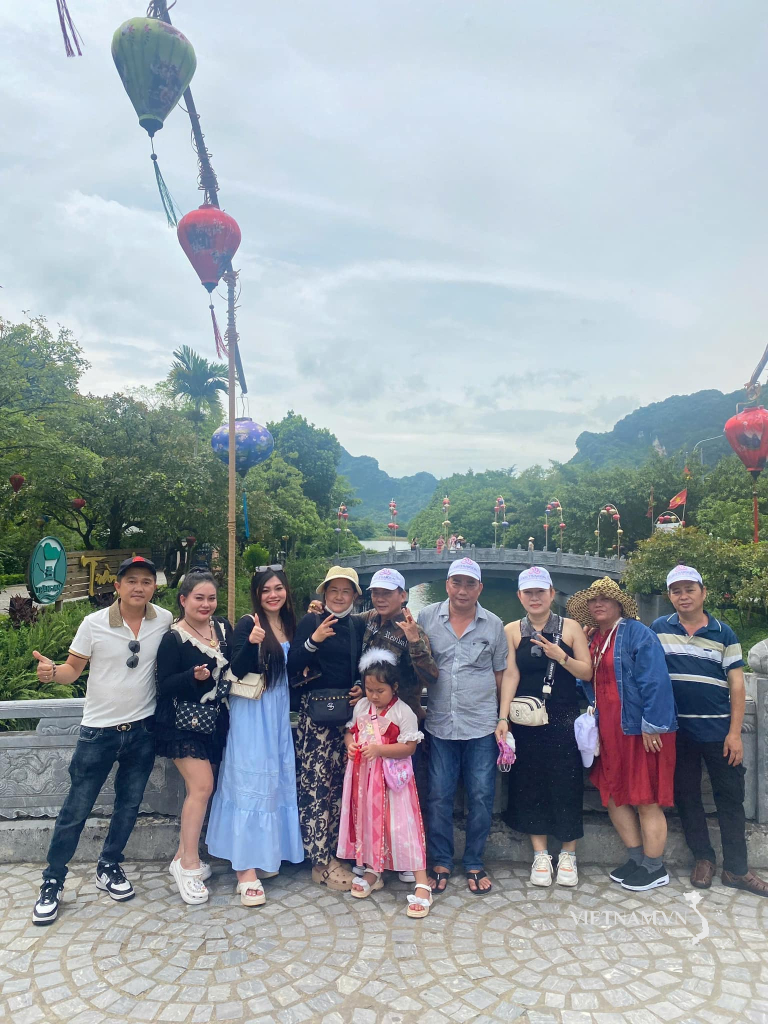

Comment (0)